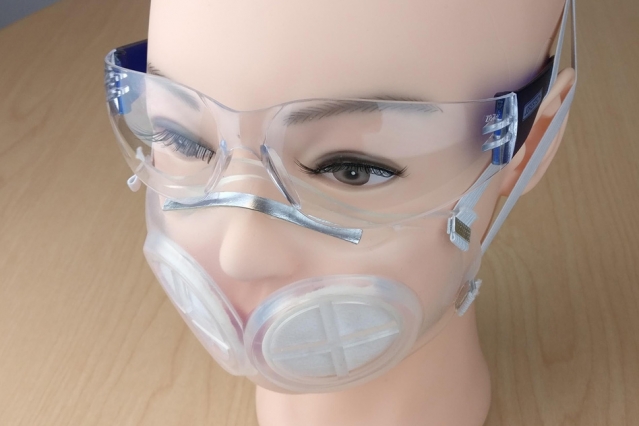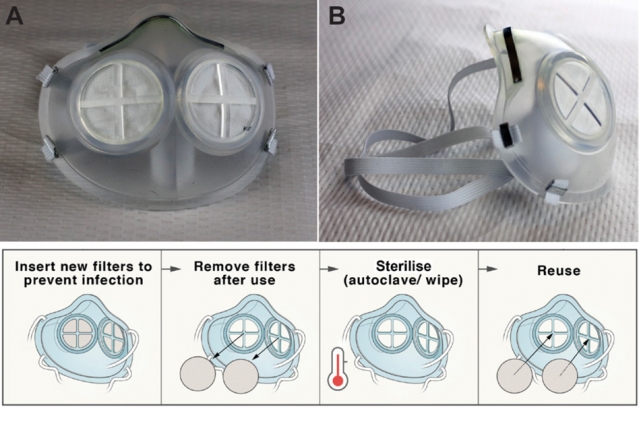A new kind of corona face mask other than the N95 mask have been proposed. It is developed by specialists at MIT along with Brigham and Women’s Hospital. It is claimed that they are effective to stop the entry of COVID-19 particles as adequately as N95 face masks. The new corona face masks are intended to be easily sterilized. Looking at the rising cases of COVID-19, there is a gap in the demand and availability of N95 masks for doctors, medical staff, laborers and others.

The new corona face masks are – Silicone face masks
The new corona face mask or the silicone face mask is made of durable silicone rubber. It has been be manufactured through injection molding. The face mask incorporates an N95 filter but requires substantially less N95 material than a conventional N95 face mask. A large portion of the these masks is made of silicone rubber, and there is additional space for inserting one or two N95 filters at a time. Those filters are needed to be replaced by a new filter after each utilization, while the rest of the mask is to be sterilized and reused.

After the feedback from the medical staff and healthcare department, the group of researchers is currently chipping away at a second and better version of the new silicone face mask. The team is attempting to build up an organization for a scaled-up manufacture and supply. They are looking for the approval of the FDA and the National Institute for Occupational Safety and Health (NIOSH).
Why are new silicone face masks more important than N95?
The N95 masks, which currently are in use, are at a shortage. This is because of the durability of those masks. The medical staff have to change their masks every time they interact with a different patient or person. But the shortage of N95 masks has pushed them towards a grave danger as they wear it for longer hours, which is out of the effectivity scale of those masks.
The sterilization process of the N95 masks is not available everywhere because of the need of specialized equipment required to carry out the sterilization process. Even after sterilizing, one mask is effective only for one day. Thus, they designed a mask that could be sterilized multiple times and still be safer.
Testing of the silicone face masks
- The scientists tried a few diverse sterilization processes on the new corona masks.
- Absorbing them in bleach and isopropyl alcohol
- Running them through an autoclave (steam sterilizer)
- Placing them in a broiler or oven.
After all these methods, they found that the silicone material is not damaged.
- For the comfort and fit of the mask, they tested it on 20 healthcare workers by performing a standard fit test required by the Occupational Safety and Health Administration (OSHA) for N95 masks.
- A nebulized sugar solution is sprayed in the room, and if the person wearing the mask can taste or smell it, it means that the mask is not appropriate.
- All the tests were successful, and the volunteers preferred the new corona face mask- the silicone mask over N95 mask. The new mask had a high breathability and fit.
This research is financed by the MIT Department of Mechanical Engineering, Brigham and Women’s Hospital, the National Institutes of Health, E-Ink Corporation, Gilead Sciences, Prostate Cancer Foundation, the Hans and Mavis Lopater Psychosocial Foundation and Philips Biosensing.
Read the paper describing the new corona masks appeared today in the British Medical Journal Open.
Traverso is the senior author. The lead authors of the study are James Byrne, a radiation oncologist at Brigham and Women’s Hospital and research affiliate at MIT’s Koch Institute for Integrative Cancer Research; Peter Chai, an emergency medicine physician at Brigham and Women’s Hospital; Hen-Wei Huang, a research fellow at Brigham and Women’s Hospital and a postdoc at the Koch Institute and Adam Wentworth, a research engineer at Brigham and Women’s Hospital and a research affiliate at the Koch Institute.